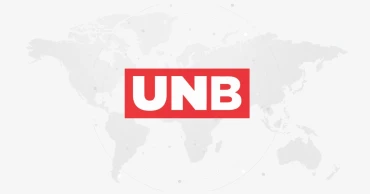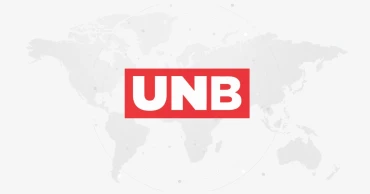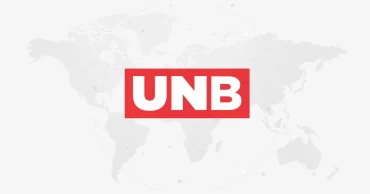poor
Germany commits EUR 15 million to pay poor rural people for their work to preserve ecosystems
To support the essential contribution that rural people make to preserve ecosystems, the UN’s International Fund for Agricultural Development (IFAD) will remunerate rural communities and small-scale producers for their environmental work through a Payment for Ecosystem Services (PES) projects.
At COP27 on Tuesday, Germany pledged to contribute to the project by providing an additional EUR 15 million to IFAD's Enhanced Adaptation for Smallholder Agriculture Programme (ASAP+).
As the increasing speed and intensity of the climate crisis are outpacing the ability of poor rural people to cope, “we need to think out of the box and find new ways, such as this scheme, to bring justice and provide the support that rural people need,” said Jo Puri, IFAD’s Associate Vice-President, Strategy and Knowledge Department.
Three PES pilot projects will be developed in Brazil, Ethiopia and Lesotho to help small-scale producers build their resilience to climate change, boost food production, better participate in markets, and improve their access to nutritious diets. Each of the three pilots will be equally funded.
All the activities under the PES project aim to contribute to the reduction of greenhouse gas emissions and boost carbon sequestration.
Read more: IFAD issues 1st bond connecting capital markets to rural poor around world
“We must not spare efforts in acknowledging and harnessing the strategic contribution of rural people in low- and middle-income countries to improve food security and preserve vital environmental resources for future generations,” said Jochen Flasbarth, State Secretary in Germany’s Federal Ministry for Economic Cooperation and Development (BMZ), at the signing ceremony.
Germany's financing pledge is also a way to encourage the international community to diversify financial instruments to fund sustainable climate adaptation and climate mitigation practises in the agricultural sector.
In Brazil, marginalized local communities will be paid to preserve forests by developing and marketing a wide array of non-timber forest products. Rural communities will protect forests by gathering, processing and selling forest products, activities that do not require cutting down or damaging trees. Remunerated activities align with traditional practices and are an income alternative for poor and food-insecure communities.
“It is about time to reward the economic value of these essential services that rural people are carrying out. These are key activities to preserve biodiversity and ecosystems, which also provide a significant contribution to mitigate climate change. They are indeed preserving our future,” Puri added.
The PES scheme in Lesotho will incentivize better water resource management in the Orange River Basin, spanning across Lesotho, South Africa, Botswana and Namibia, and rural communities will be able to contribute to restoring degraded soils and landscapes.
Read more: Global food systems must be changed: IFAD
In Lesotho and Ethiopia, as an income-generating opportunity, small-scale farmers will be connected to the voluntary credit carbon market, where companies and countries can buy credits to make up for greenhouse gases, they themselves emit.
Since the establishment of IFAD in 1977, Germany has contributed US$711 million to IFAD’s work on climate action, gender equality, food and nutrition security, and establishing equitable and sustainable food systems. Germany has also provided loans for up to EUR 800 million through KfW, Germany’s public development Bank, and contributed US$89 million in supplementary funds to support inclusive sustainable value chains development, climate adaptation, and youth employment.
3 years ago
Govt to reach food to one crore families before Eid: Quader
About one crore poor and helpless families will get food aid from the government during the upcoming Eid-ul-Azha considering their hardships caused by coronavirus, Awami League General Secretary Obaidul Quader said on Tuesday.
The aid package is part of the government’s numerous initiatives to provide financial and food assistance to the helpless and working people who have been affected by the pandemic, Quader said in his regular briefing.
Referring to floods in parts of the country the AL leader urged his party’s members to stand by the affected people with relief and whatever else they need.
Also read: Govt to give Tk7.70 crore to Covid, disaster-hit families
He said Prime Minister Sheikh Hasina has already directed the administration to take early preparations to mitigate the possible damage and sufferings floods may cause.
Quader urged the administration as well as Awami League leaders and workers in the flood-hit areas to stand by the people.
He said it has always been the Awami League who reaches the affected people with relief and help during natural disasters.
Also read: Covid: 77pc families in Bangladesh hit hard by first wave, says study
4 years ago
Red Crescent to help over 15000 families with Ramadan food packs
Bangladesh Red Crescent Society has started the distribution of Ramadan food packs among 15,300 poor families hit hard by the Covid-19 pandemic in the country.
With the support of Qatar Red Crescent Society, the food packages are being distributed among the poor depending on daily labour in the capital and several districts.
Of them, 500 families are getting the food support in Dhaka city, while 1,000 families in Rajshahi city, 1,000 others in Rajshahi district, 500 families each in Narsingdi, Munshiganj and Narayanganj districts, as well as 10,300 families from displaced Rohingya living in Ukhia Camp-11 and local community in Ukhia of Cox’s Bazar.
Also read: Local Red Crescent chapter receives 4 ambulances equipped against COVID-19
Besides, 1,000 other families are receiving food assistance through the headquarters of Bangladesh Red Crescent Society.
The food packages are also being distributed maintaining the health hygiene rules amid the Covid-19 pandemic, said a press release on Sunday.
Ultra-poor, helpless, disability and low-income families are given priority in the selection of beneficiaries for the food assistance.
Also read: Covid-19: Red Crescent Society launches isolation, treatment centers in Cox's Bazar
Date, pulse, soybean oil, sugar, salt, puffed rice, chira, chickpea, and vermicelli are included in the food packs.
Director of Disaster Response Division of the Society Mizanur Rahman said the distribution of Ramadan food packages is a part of the humanitarian assistance of the Red Crescent Society.
“The Ramadan food packages will be distributed among total 15,300 families,” he said.
Also read: Red Crescent donates PPE to 4 Covid-19 dedicated hospitals
Besides, under the initiative of Red Crescent Society, the distribution of cooked healthy food among extreme poor and low-income floating people continue in Dhaka, Chattogram, Habiganj, Barguna, Munshiganj and Sunamganj amid the Covid-19 lockdown.
A total of 8,016 packets of cooked food were distributed among the poor from April 18 to April 22 last during the lockdown, said Mizanur Rahman.
Moreover, the disbursement of food packages among 4,000 extreme poor and low-income people in both Amphan and Covid-19-affected four districts – Khulna, Satkira, Bagerhat and Pirojpur – continues under the initiative of the society with the support from HSBC bank.
Read Covid-19 in Bangladesh: PM allocates Tk 10.50cr for affected poor
4 years ago
Employment generation program for poor tainted with irregularities in Magura
Allegation of irregularities, and beneficiaries being deprived has been raised in a 40-day project of the government's ‘Employment Generation Program for the poorest’ in Magura.
On a recent visit to the project sites, UNB reporter could spot maximum of 8 to 10 labourers working on each site.
The project was being conducted in a lax manner defying the government rule of appointing 35 to 40 workers to each site.
A local Awami League leader reluctant to disclose his name said the irregularities persisted in the project to benefit some corrupt public representatives of the district's Kuchiapara union.
The appointed poor workers suffer to maintain their family with the insufficient wage of Tk 200 per head, he said.
A headman from the project said the later the bills get paid the more it benefits the local chairman and MPs.
As they have to share the profits with officers, cashing bills twice in 40 days benefits them more while the poor workers suffer, added the headman.
When asked about the matter, Project Implementation Committee (PIC) members Kanak Bala, Imroj and Babul Hossain Molla claimed there is a scarcity of labourers as paddy harvesting season is going on.
Most of the project headmen echoed the same reason for inadequate labourers being appointed at the sites.
Upazila Nirbahi Officer Abu Sufiyan and education officer Bajnedra Nath said they have asked for increasing the number of labourers but the heads of the project didn’t pay heed.
When informed, the Project Implementation Officer of the project said bills will be paid only for the appointed number of workers.
The chairman of the union Jahangir Hossain didn’t receive the call when contacted over the phone on this matter.
4 years ago
Covid-19 in Bangladesh: PM allocates Tk 10.50cr for affected poor
Prime Minister Sheikh Hasina on Wednesday allocated Tk 10.50 crore in favour of deputy commissioners of the country to provide assistance to the poor, distressed and insolvent people who have been affected due to the ongoing lockdown that the government enforced for containing the spread of Coronavirus.
"The assistance has been provided from the PM's Relief and Welfare Fund," said PM's press secretary Ihsanul Karim.He said the deputy commissioners will provide the assistance after making lists of the poor, distressed and insolvent people who have been affected most by the going on lockdown.The amount of the allotted money will vary depending on the number of poor, distressed and insolvent people in the districts.Karim also said all the deputy commissioners of 64 districts will get the share of the allotted money.The government has imposed a nationwide limited scale lockdown for one week from April 5 as part of its move to contain the spike in both coronavirus infections and fatalities.After the weeklong lockdown, the government enforced a fresh one week lockdown with harsher measures from April 14 and later it was extended till April 28 midnight.
Read Bangladesh braces for ‘another weeklong lockdown’
On April 18, the Prime Minister declared to provide financial assistance to some 36 lakh families who have been hit hard by the ongoing coronavirus pandemic and recent natural disasters.The 36 families include 35 lakh low-income ones engaged in different occupations but hit hard by the current coronavirus situation, and the rest one lakh are farmers affected by recent natural disasters.An amount of Tk 2,500 will be provided as cash support to 35 lakh families, while Tk 5,000 each will be given to one lakh families of farmers.The government will spend a total Tk 930 crore to disburse cash among 36 lakh families as the allocation for Covid-hit low-income families is Tk 880 crore and for disaster-affected farmers is Tk 50 crore.
Out of 30,94,249 hectares of cropland in 36 districts, 10,301 hectares of cropland was completely destroyed while 59,327 hectares partially damaged due to strong winds, hailstorms and cyclones on April 4, 2021. Some 100,000 farmers were directly affected due to the recent disaster, according to the data of the Department of Agricultural Extension.
Also read: Coronavirus: ‘What option do you have when you’re hungry?’Under the circumstances, the Ministry of Agriculture has recommended providing Tk 5,000 to each farmer as they are affected by double blows -- natural calamity and Covid-19 pandemic.The ministry has already started enlisting one lakh farmers incorporating their names, national identity card and mobile numbers in the list. The actual allocation for the farmers can be more or less depending on the number of farmers in the final list.In the 2019-20 fiscal year, the government disbursed Tk 2,500 as cash aid to each 35 lakh families scrutinising a list of 50 lakh families hit hard by the first wave of the Covid-19 pandemic. The allocation for providing cash support to the poor families was Tk 1257.50 crore.The Prime Minister in May 2020 inaugurated the disbursement of cash support through G2P (Government-to-Person) through mobile financial services (MFSs). In the wake of the second wave of coronavirus, the government has enforced lockdown to prevent the spread of the virus.In this context, the ministry concerned recommended providing Tk 2,500 as cash aid to each of 35 lakh families this time.
4 years ago
No respite from cold
A mild cold wave is sweeping over different parts of the country disrupting normal life.
6 years ago

.jpg)






